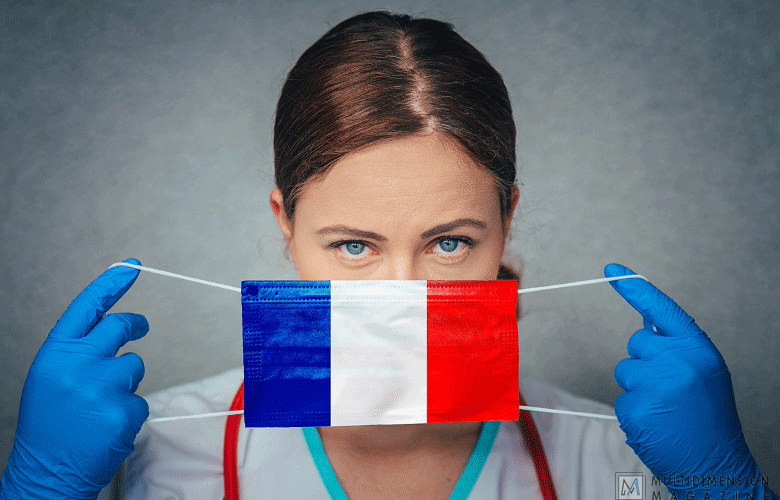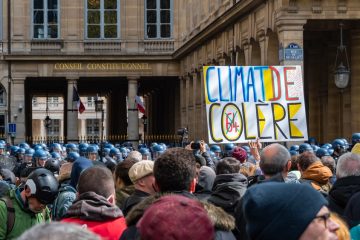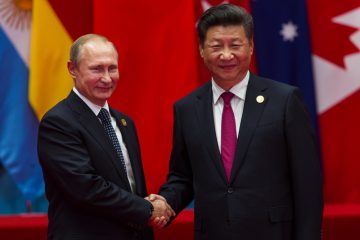Written by : Fugel Khan
(Student of Masters in Social Science, University Paris 8, Saint Denis)
Photo credit : Shutterstock.com
A French perspective : Part 1
Before the world could assess the impact of forest fires in Brazil and Australia on the survival of humankind, the worst was not thought to have happened until the appearance of the COVID-19 virus, which finds its origin in a local market of Wuhan city in late 2019. The Chinese authority, which was rather discreet at first, officially recognized the spread of the epidemic in January 2020, and the WHO confirmed it.
The Republic on move : one step forward, two steps back!
While the epidemic very quickly affected countries like South Korea, Taiwan, Hong Kong and Iran, the European Union and the French government, looking down from afar, saw no potential threat of spread. No precautionary measures were envisaged, even though at the same time Russia and Israel had already closed their borders. In this context, the French government’s lack of foresight, which many see as amateurism and/or failure, was evident. This was followed by contradictory statements from the leading government dignitaries. Here is a summary:
On January 21, former Health Minister Agnes Buzyn boasted that she had taken the necessary measures by putting up precautionary signs on flights to China. On 24 January, she declared that “the risk of importation from Wuhan was moderate, if not zero”, refusing to stop flights to China. It should be noted that the majority of the media have confidently followed the same idea of minimum risk. Considering it as a simple flu, any precautionary principle has been rejected by journalists and columnists of the major television news channels. Afterwards, it was considered useless to buy masks against the coronavirus, before selling the French stock to China.
February 26, 2020: While the signs of a potential epidemic appeared in Italy, as well as other European countries, the European Commission believed that border controls are not justified. When Italy closed its border refusing entry to French citizens, vehicles from Italy could enter French territory without control. We even saw the television channels invite various public figures to appear on their programmes to encourage the commoners to keep up their daily routines, with the best known among them, doctor Mychel Cymes, on the front line.
At the beginning of March, while Italy found itself reeling under pressure with an increasing number of deaths and tens of thousands of confirmed cases, the European Union played the game of the blind, offering no measures or assistance, as if nothing had happened. Indeed, Italy, which could no longer afford to care for the sick, launched dozens of calls on TV channels. The call for help from a social network actor who had his dead sister in the next room without being able to get treatment or have her body recovered moved the world.
Coronavirus health crisis management and socio political consequences part-2
coronavirus health crisis management and socio political consequences part-3
At the same time, a global stock market crashed and noticed a dramatic drop in the price of oil to around $30 a barrel as the Saudis decided to sell off at a very low price competing with Russia. Facing such a serious and imminent situation, the government, worried by the economic crisis and the fall of the CAC40, initially refused to adopt any strong precautionary measures to save the rest of the growth.
On March 12, Jean-Michel Blanquer, Education Minister, declared on Franceinfo that he had never envisaged confinement nor the closure of schools under the pretext that it would be counterproductive. The same day, a few hours later, the President Macron declared the closure of schools, nurseries and universities from Monday 16th March until further notice. He timidly forbade public exits, but without specifying it as a lockdown.
On the other hand, the government maintained the first round of the municipal elections scheduled on 15th March on the pretext of having consulted the scientific council, which saw no harm in it. Subsequently, it is now turned out that several assessors and polling station presidents were ill with COVID-19, at present two mayors who had participated in the elections have also died of the coronavirus.
Rumours surfaced that the President Macron was in favour of postponing the elections but had to give in to pressure from certain leaders, including the Speaker of Parliament. In the evening of municipal elections, which confirmed the catastrophic defeat of candidates of The Republic on move (LERM), things started to change. On March 15 itself, Jean-Michel Blanquer said that the coronavirus will “probably” affect 50 to 70% of the French. The European Commission delivers its mea culpa on border controls, and the president of the European Commission Ursula von der Leyen finally back-pedaled.
In the evening of 16 March, the President Macron declared a state of war against the coronavirus; giving only a few hours to all establishments except those related to very essential services to close down by the midnight. The second round of elections was logically postponed.
These contradictions, paradoxes and huge inconsistencies of the government with the gap of just a few hours did not go unnoticed. On the contrary, it cast even more doubt on public opinion, causing people to panic en masse in the supermarkets. Nevertheless, we should be happy to be pleased by the volte-face the government which has finally put in place the lockdown.
But were these measures sufficient to deal with the crisis?
Indeed, in the first few weeks, the government through its spokesperson Sibeth Ndiaye and the Health Minister Olivier Véran kept repeating in their communications that masks and screening were not necessary. They went even further by asking citizens to donate their masks to the health personals. This had enormous long-term consequences and was at the heart of the criticisms. Indeed, the government was accused of lying about the ineffectiveness of the masks and tests because there were simply no masks in stock. Can one imagine in a country like France, seeing nurses, general practitioners, police officers working without masks, when they are on the front line of the war in the trenches? At the end of March, police unions appealed for donations and a kitty to buy protective equipment (masks, hydro-alcoholic gels). On 28 March, the State Council rejected all the requests of the health care unions for more resources for health professionals and, among other things, the requisition of masks and “means of mass screening” for COVID-19.
(To be continued…)
The views expressed in this article are the author’s own and do not necessarily reflect Multidimension’s editorial stance.
REFERENCE :
Contre le coronavirus, Agnès Buzyn juge “inutile” l’achat de masques
Coronavirus : la Commission européenne estime que les contrôles aux frontières ne se justifient pas
Le coronavirus touchera “probablement” la moitié des Français, selon Jean-Michel Blanquer
Coronavirus : sur les frontières, la présidente de la Commission européenne rétropédale
Coronavirus : au moins deux maires présents lors du premier tour des municipales sont morts




